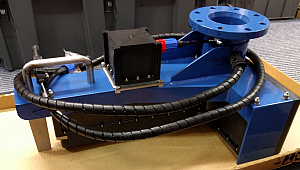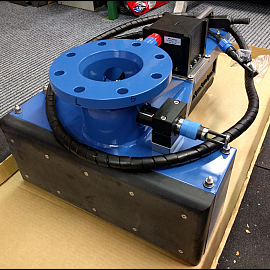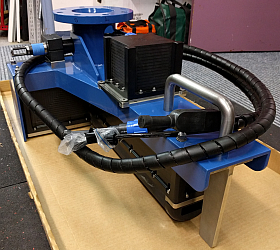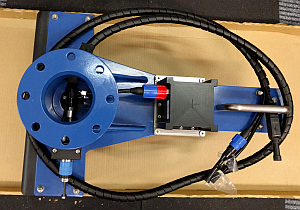R2 Sonic Multibeam Echosounder
The School of Surveying manages a 2026 R2 Sonic Multibeam Echosounder on behalf of users in departments across the University of Otago. Our multibeam echosounder can collect depth, seabed intensity and watercolumn data.
For information please visit:
https://oceanexplorer.noaa.gov/explorations/09bermuda/background/multibeam/multibeam.html or
https://www.r2sonic.com/training/
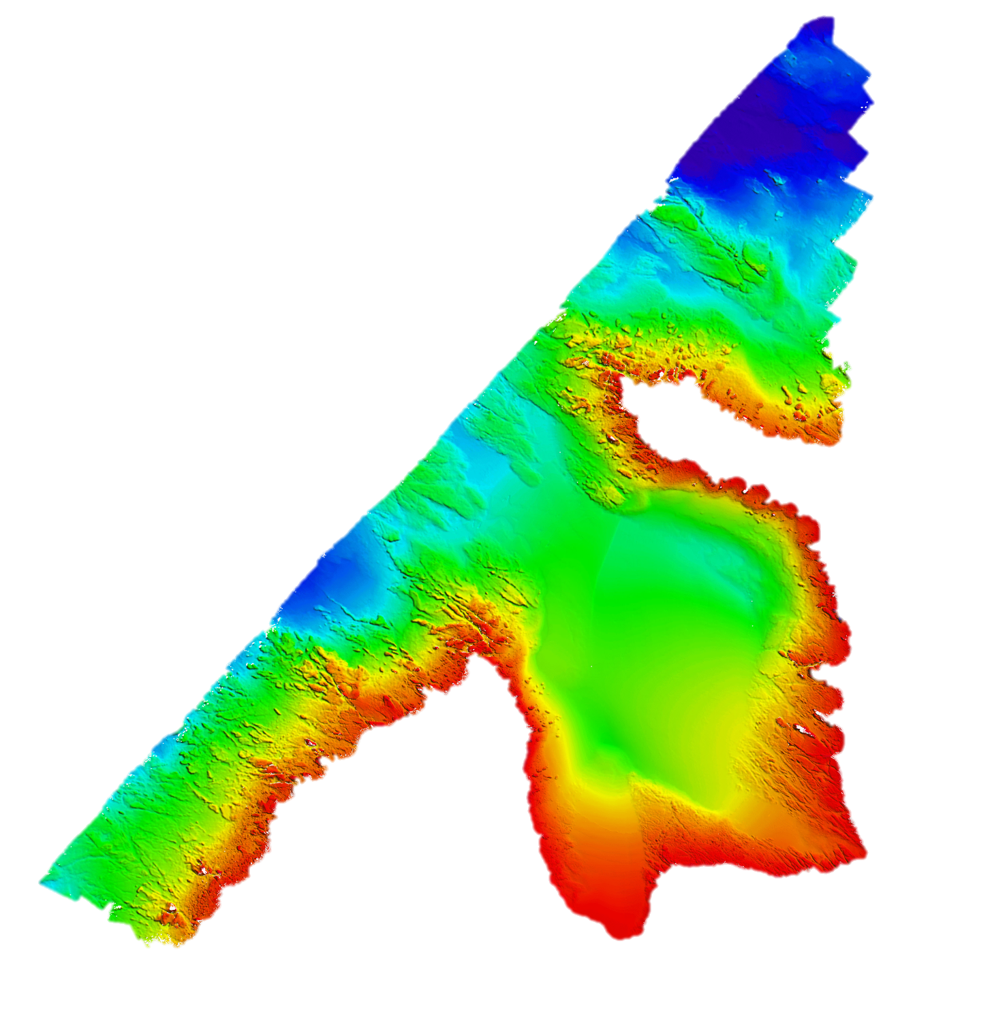
The equipment is available for teaching and research when accompanied by a trained University of Otago user. It is also available for commercial hire – for commercial hire enquiries or more information please contact Emily Tidey.
Equipment Component | Description |
|---|---|
| Mounting | Plastic coated blue-bracket holds MBES, I2NS, SVS and 3m deck cable
|
| Motion Sensor | R2 Sonic Integrated Inertial Navigation System (I2NS) |
| SVS at head | Applanix Micro X |
| Cabling | 3m deck cable attached to the Blue Bracket, with an additional 15m extension, making for a total 17m cable length from top of Blue Bracket. |
| SV probe | Valeport miniSVP with Bluetooth connection |
| UPS | On-line system for clean power and backup |
| Top-side | Sonic Interface Module (SIM) connects to equipment and laptop |
| Laptop | Getac X500 |
| Software | Sonic Control, POSview, QPS suite (QINSy, Qimera, Fledermaus, FMGT, FMMidwater), Valeport Datalog X2 |
| Parameter | Specification |
|---|---|
| Depth | 1 – 800m+ depth |
| Soundings | Up to 1024 per swath |
| Frequency | 90kHz – 450kHz operational frequency that can be changed on the fly |
| Swath width | Sector selection from 10° - 160° that can be changed on the fly |
| Beamwidth | Focused 0.45° x 0.45° @ 450kHz, 1° x 1° @ 200kHz, 2° x 2° @ 90/100kHz |
| Ping rate | Up to 60Hz |
| Pulse length | 15µs – 2000µs |
| Interface | Small sonar interface box on topside, connects via network to PC |
| Power | Low power consumption, average 75W |
| Weight | Fully assembled head with 3m cable ~45kg in air Fully packed wet-side transport case ~60kg, including head, 18m deck cable, SVP Fully packed top-side transport case ~22kg, including SIM, UPS and GNSS antennas |
More information can be found at https://www.r2sonic.com/product/sonic-2026/
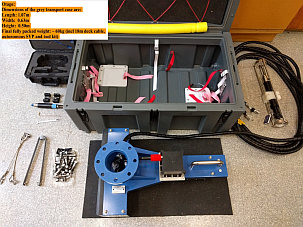
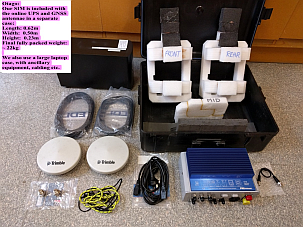
MBES System Mounting Options
The equipment can be fitted to existing over-the-side poles on many University vessels.
The current mounting configurations include the University research vessels, Polaris II and Tuhura, and a custom made pontoon for towing or attaching to the side of smaller craft. These vessels have offsets determined to streamline mobilisation and get you measuring as fast as possible. We can also send flange details if you wish to manufacture your own mount.
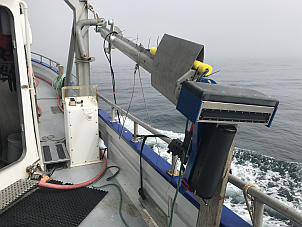
Booking
University of Otago users need to have a trained operator with the equipment and an account created by Marine Science so that they can book the gear using the Marine Science Fieldwork and Resources Planning tool found at https://www.otago.ac.nz/msfrp
Important: When booking you must allow time for set-up and demobilisation. We recommend you consult the booking calendar and work with adjacent bookings as much as possible.
Before hire you will be asked to sign a User Agreement and fill out a Collection Plan. It is anticipated that data collected with this equipment will become publicly available, after a suitable research interval so it is vital that complete metadata be recorded and stored with the original data. On return you need to fill out a Hiring Period Completion Form to aid billing.
University research and teaching internal hire prices at June 2023 are:
- $250 per day in use
- $50 per day for setup and standby
These prices are reviewed annually.
Commercial hire is managed separately and handled by university contracting procedures. Door-to-door insurance must be provided. Equipment requirements will be discussed on a case by case basis. Early contact is recommended.
Contact
For more information, please contact:
Emily Tidey
Hydrographic Surveying Lecturer
Room 112, 310 Castle Street
Tel +64 3 475 7587
Email emily.tidey@otago.ac.nz
